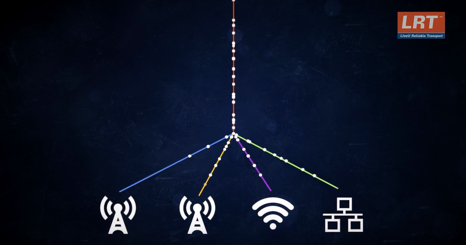Great Guide to LiveU Cellular Bonding
By Adam Noyes
Cellular bonding has made it possible for news stations and sports broadcasters to produce some of the most powerful live moments on TV in recent years. In fact, you already watched hundreds of “live shots” on TV that were contributed over cellular bonding, you just never knew it!
Let’s talk a little history first.
Twelve years ago, LiveU disrupted the broadcast industry by patenting its first cellular bonding solution, which eliminated the need for expensive satellite or microwave trucks to transmit high-quality live video from out in the field. From there, major news organizations took notice and started using LiveU to go live outside the studio. Over the years, LiveU became the standard for live newsgathering and reporting.
Three years ago, LiveU revolutionized the online industry by taking that same technology and incorporating it into a smaller, plug-and-play encoder for the prosumer market – making the technology accessible to the growing online streaming market.
Today, social media networks have made it super easy to go live. Just sign in to your account, hit the go live button and boom you are live streaming to your audience. This is good way for people to start live streaming but once they need to scale up, they need a more robust solution.
We commonly hear people say “If I can go live on my cell phone, why do I need cellular bonding?” Short answer is, your one network cannot guarantee you will stream at the quality you want. Long answer is bandwidth is always fluctuating depending on different variables like your geographic location, people on the same network in your area, if you are inside or outside, and more. If the one network has little to no bandwidth your stream will either look pixelated or not even show up at all.
Many content creators started streaming outdoors using their cell phones simply because there was no alternative way to do it that they were aware of OR other solution were just out of their price range. Besides the bandwidth issues that come with mobile streaming from your cell phone, other hiccups include someone calling your phone (yes, the phone you are using to stream!) which can disrupt the content or end the stream completely. What else? Your phone needs to be free so you can use it to interact with your community. Isn’t that what producing live is all about?

Awkward’s Travel, the duo that explores the world, didn’t want to wait to start streaming until they had the funds to buy professional streaming gear so they they started with their cell phones. They quickly realized the phone had its limitations.
“At the start, phone streaming was the norm for IRL, but it came with a lot of setbacks such as low resolution and interruptions. Then many streamers started jumping from phone streaming to a LiveU-powered IRL backpack. We were so impressed with the results, the possibilities, and the fact that it was quickly becoming a standard for outdoor streaming, that we had to get our hands on one.”
The LiveU Solo uses cellular bonding technology (LRT) that adds multiple cellular networks together to create redundancy and reliability to the video encoding.
Our LRT technology expects cellular bandwidth fluctuation and corrects it in real- time, so your stream will stay HD quality your audience know and loves.
LRT is optimal for content creators who are live streaming from different places. With cellular bonding, streamers don’t have to worry about cell service holding up in certain locations with questionable connectivity. With LRT, you know you will get your HD quality stream online, stress-free.
If you are serious about streaming and you have the means to make the upgrade, then cellular bonding is something you want to make the investment in. You’ll start to see the benefits very quickly – from going to places where you couldn’t stream before in the highest quality to freeing up your cell phone for more interactivity with your viewers. The viewers will respond to it and it will help you grow even more.


